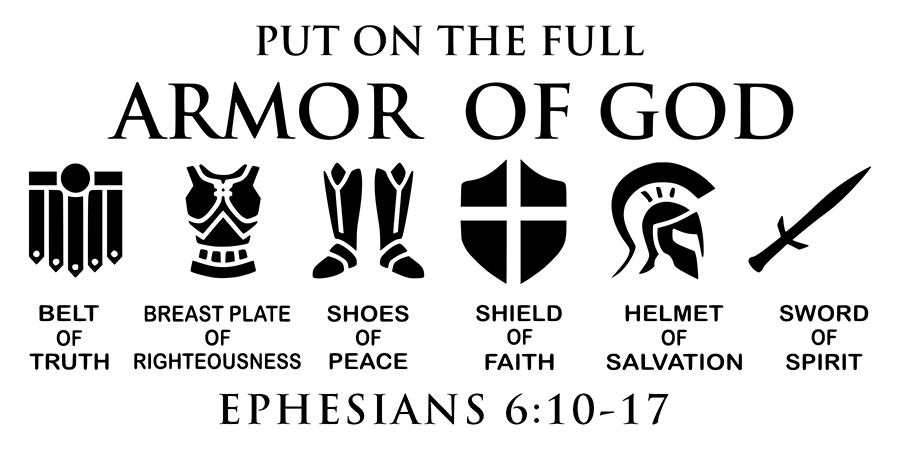You are in Beware the Wolves -> List of False Teachings
Many people (even Christians) simply accept whatever they have heard repeated often, frequently, and loudly (usually over an extended period of time) as truth and assume it to be correct without challenging it, inspecting it, studying it, and being like the Bereans – checking to see if what is being repeated actually matches the truth of Scripture.
One such example of this happening has been the “sinner’s prayer” false teaching which is constantly and loudly repeated as the way to salvation by nearly all so-called “modern” American Christian churches, and yet this book has shown you that this “sinner’s prayer” teaching is nowhere to be found in the Bible.
I now present another example, the so-called “Nicene Creed,” which is a widely repeated, accepted, and believed statement of Christian faith/doctrine. The creed was formed at the First Council of Nicaea in A.D. 325 and has been blindly (for the most part) accepted as valid and true by most Christians ever since.
I had actually never heard of this creed until I came across it after I had finished the first edition of this book and was looking for ways to market it. One such “Christian” marketer required me to accept the “Nicene Creed” by clicking a little checkbox on their website before I could even submit the book for consideration. So, I did what a Berean should do…I researched the creed, where it came from, and what it says. It all sounded very “Biblical” (yes, even after writing this book, it wasn’t immediately obvious to me there were any problems in it), but since I had become so sensitive to “false teachings” everywhere I looked in Christendom, I decided to do further research before just blindly accepting it. I also, therefore, went to read and study what other trusted sources had to say on it, and lo and behold, I found I cannot simply and blindly accept the little innocuous looking creed agreement checkbox on that “Christian” marketer’s website.
I’ll leave it as an exercise to the reader to do their own research into the Creed, but the below snippet from Wayne Jackson gives you a solid start: [1]
But there is one novel theory regarding Christ that was embraced by the evolving apostasy that eventually manifested as Catholicism in its various forms. Later, a majority within the Protestant movement also adopted the idea.
And what is this false idea regarding Jesus?
It is the notion that Christ in eternity past always was the “Son of God.” That he was “eternally begotten” or “generated” by the Father and “proceeding from” him.
Today, it is hard to find many volumes on systematic theology that do not advocate the dogma of the eternal sonship of Jesus.
Origin and Growth of the Eternal Sonship Theory
Several of the church fathers occasionally used language that hinted of the eternal generation doctrine, but it appears to have had its most vocal introduction with Origen (c. 185-254), a scholar in Alexandria whose mind “shot off ideas like a Roman candle” as someone has said.
Here’s what he wrote:
“Jesus Christ Himself, who came (into the world), was born of the Father before all creatures; that, after He had been the servant of the Father in the creation of all things — “for by Him were all things made” — He in the last times, divesting Himself (of his glory), and became a man, and was incarnate although God” (De Principiis Preface 4, emphasis added).
The theory obviously gained momentum because it was incorporated in the Nicene Creed in A.D. 325. Christ is described as “Son, only begotten, Firstborn of all creation, begotten of the Father before all the ages” (Bettenson, 35, emphasis added).
Later, Augustine (354-430) provided the notion with considerable notoriety. Philip Schaff described Augustine as one who possessed a “speculative spirit” — a depiction that certainly holds true with reference his thoughts on the Godhead. Schaff notes that: “by his discriminating speculation he exerted more influence upon the scholastic theology and that of the Reformation, than all the Nicene divines.”
Not only did Augustine repudiate the concept that Father, Son and Holy Spirit are “three separately subsisting individuals,” he vigorously advocated the theory which contends the Son was eternally begotten of the Father. His view “gradually met universal acceptance in the West” (III.684-687). Augustine significantly impacted both Roman Catholicism and modern Protestantism.
It is utterly amazing how, on occasion, the influence of very few personalities have channeled almost the entire stream of history.
…
Begotten Is Not Eternal
If it is the case that the Second Person of the Godhead was begotten, he is not eternal God, for eternality is an intrinsic quality of deity. God is from “everlasting to everlasting” (Psa. 90:2).
So here is a very important implication. If a doctrine by necessary implication negates the deity of Jesus Christ can one be considered faithful who espouses it?
Contradictory Language
The dogma is discredited logically by self-contradiction. To contend that the Son was eternally begotten is a manifest contradiction of terms. It is the equivalent of saying, “Christ had an eternal beginning.”
Can an object both begin and not have been begun?
Mumbo-Jumbo Theology
Advocates of the eternal Sonship dogma are forced to resort to some of the most discombobulated jargon to explain their position. One writer says:
“If God is the perfect Mind, action of the same nature with this will enter into his self-consciousness also. He too will reproduce himself in thought, and recognize the reproduction as identical with the Mind that thought it forth” (W. Clarke, 173).
Another says: “there must be in God a producing not subject to time, and productions which have no beginning” (McClintock, IX.889).
When the language employed in an attempt to explain an issue becomes such a linguistic maze that not even the zealous advocate for the theory can convey it rationally, you can be assured that the idea behind it is suspect.
The lesson I’m trying to teach you here by calling out this Nicene Creed false teaching is to hopefully train you to challenge every single thing you read and hear, even when it sounds very “Biblical” on the surface. It would have been a simple matter for me just to accept the little checkbox of this very Biblically sounding statement on the market’s website and get on with life, but it turns out that while objections to the Creed’s language may seem minor at first, they hit at the very heart of the deity and eternality of Christ, so it’s not something one should just “blindly accept.”
It is through these very small errors (in wording) that much larger apostasy arises later on. Do not give your enemy (Satan) any openings whatsoever! So please, dear brother or sister in Christ, don’t just go along blindly accepting whatever you hear or read being taught or preached – regardless of the source, regardless of how often they repeat it or how loudly they proclaim it, or how many distinguished initials they place before or after their names or the size and pomp of their church or congregation. See also the example given earlier in this book about the “Biblically sounding” Christian tract/pamphlet which was being passed out by “an old fashioned, independent, Baptist Church that believes, preaches, and practices the Bible.”









